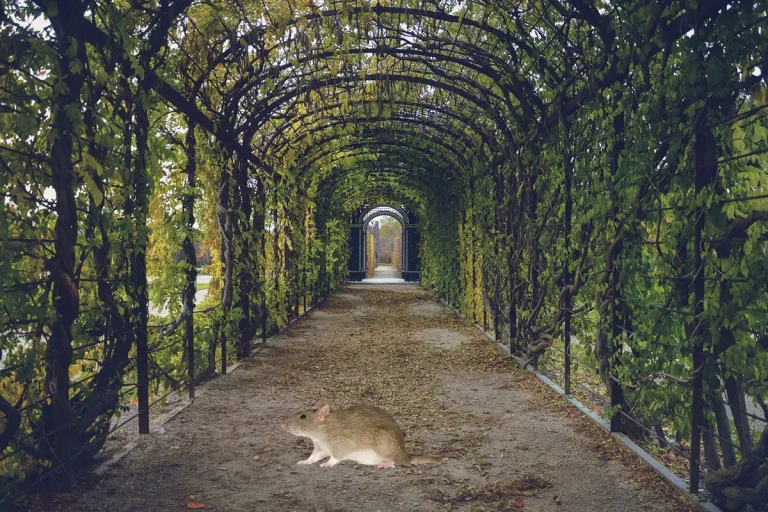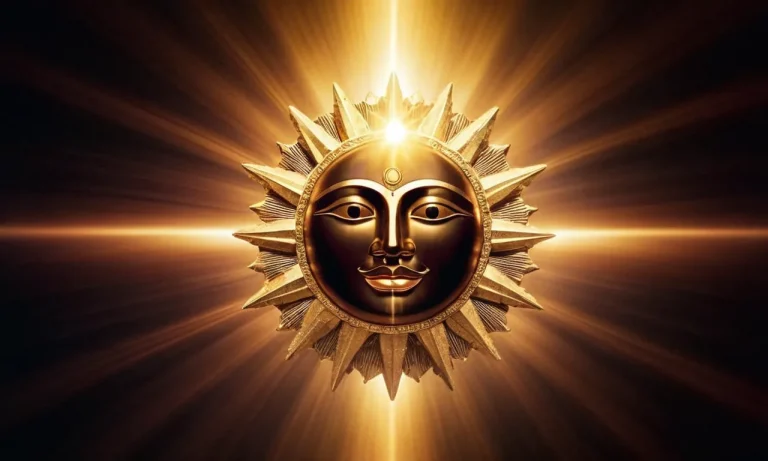If you have ever seen a black rooster or wondered what they could represent, you likely noticed their striking and unique appearance. With their inky plumage and crimson combs, black roosters stand out from typical brown and white chickens.
If you’re short on time, here’s a quick answer to your question: Black roosters symbolize masculinity, pride, mysticism, vigilance, and even magic or witchcraft in some cultures.
In this comprehensive guide, we will explore the history, folklore, and spiritual symbolism tied to black roosters from around the world. We will uncover why many cultures see black roosters as mystic creatures and how their dark color influences their symbolic meaning.
Additionally, we look at some famous black roosters from myths and the real world.
The Unique History of Black Roosters
How Black Roosters Differ Physically from Typical Chickens
Black roosters have several physical characteristics that set them apart from more common red and white chickens. Their feathers, comb, wattles, and even internal organs are black or very dark gray. Their black feathers contain higher levels of the melanin pigment.
While rare, black roosters are considered a recognized color variation in several chicken breeds like some Black Star chickens.
In addition to the striking black plumage, black rooster combs and wattles tend to be a very dark maroon color. Their beaks, feet, and even internal organs may appear black or dark gray. Despite the dramatic colors, black roosters function the same as lighter colored roosters and do not have additional health problems.
Legends About the First Black Roosters
There are many folk tales and legends about where solid black chickens originated from. One legend claims that during medieval times, black roosters appeared after a fire burned down a barn of white chickens. The few chickens that survived emerged black from being stuck in the soot and ash.
Another story credits black fowl to Roman times in England when exotic birds were brought back from trading voyages.
A more fantastical origin story says that Satan created black roosters to serve as alarm clocks in hell. But a few of these hellish fowls managed to escape purgatory and migrate to earth as messengers between the dark underworld and humans above.
These spooky tales only add to the mystical allure of the black rooster through history.
Cultural History in Asia, Europe and the Americas
Beyond folklore, black roosters have special meaning in many world cultures. In Asia, black roosters were considered a symbol of good fortune and celebration. Images of the dark fowl commonly adorned Chinese New Year decorations and amulets.
In contrast, Europeans saw the black rooster as a more ominous sign of betrayal and misfortune. This perception may have roots in Christian beliefs of roosters crowing after Peter denied knowing Jesus.
Native American tribes have mixed views on black chickens. Some saw them as good omens, while other tribes thought they were associated with witchcraft rituals. In current Brazilian culture, some believe having a black rooster brings you increased luck and prosperity.
With diverse views spanning multiple continents, the black rooster remains a culturally symbolic bird shrouded in mystique.
Black Rooster Symbolism and Spiritual Meaning
Representing Pride and Masculinity
In many cultures, the black rooster is seen as a proud animal representing masculinity. Its glossy black plumage and fearless strutting behavior symbolize self-assurance and virility. As a territorial bird quick to announce its presence at sunrise with a robust crow, the black rooster epitomizes the alpha male.
According to Native American lore, the black rooster signals rising power and status. Its dramatic coloring also makes it a solar emblem among several religions and denotes spiritual illumination.
Associations with Magic and Witchcraft
With its midnight feathers and reputation for heralding the dawn, black roosters have long been intertwined with magic and superstition. In some witchcraft traditions, black roosters are familiars closely tied to pagan rituals. Their dark feathers, in particular, connote mystical properties.
Some witches collect the feathers for use as magical quills or wands.
The black rooster also plays a role in voodoo and Santeria rituals as a sacrificial offering, with practitioners reading omens in the patterns of its blood (though this practice is controversial due to cruelty concerns).
Across the Southern United States, black roosters were once buried under doorsteps as tokens of good luck or to curse enemies.
Vigilance and Protection
As keen-eyed foragers that act as lookouts for their flock, black roosters exemplify watchfulness and protection. If threatened, the rooster will confront predators with spurs and by flapping its imposing wings. So in many folk traditions, the presence of a black rooster safeguards against danger.
Black roosters were sacred in Ancient Rome, where their dark feathers represented the night watches. Placing their image on coins honored the rooster’s vigilant nature. According to an old European belief, a black rooster’s crow would scare off malign spirits.
Importance in Diverse Religions and Mythology
The black rooster appears in myths and lore across Africa, Asia, Europe, and the Americas. It often holds deep symbolic meaning:
- In Santeria, the black rooster embodies powerful orishas like Eleggua, the messenger deity
- Chinese and Korean mythology links the black rooster with the solar yin-yang and other opposites
- Ancient Egyptians consecrated the black rooster to Ausar, god of the afterlife
- Celtic legends connect the black rooster with Otherworld journeys
- The Talmud and Quran mention a giant rooster whose crow will awaken the dead on Judgement Day
- In Vodou, the black rooster represents the loas Papa Legba, Marinette, and Kalfou
- The Devil is sometimes envisioned with black rooster features or familiars
So whether viewed as a solar emblem, warrior spirit, witch’s companion, psychopomp, or apocalyptic messenger, the black rooster has fascinated humanity across eras and cultures.
Black Roosters in Mythology and Lore
Legends from European Folklore
In many European tales, the black rooster is seen as a harbinger of misfortune. Their crowing at odd hours of the night was thought to signify an impending death or disaster. Black feathered roosters were also associated with witchcraft.
People believed witches shape-shifted into roosters to sneak into homes undetected. However, some traditions see the black rooster as a protective charm against evil spirits. Their loud crow was thought to scare away malevolent entities before dawn.
Black Roosters in Voodoo
In voodoo and African diaspora traditions, black roosters play an integral role in various rituals. Their sacrifice is believed to activate petwo spirits – the hotter, more violent loa spirits. The blood of black roosters offered as sacrifice is also symbolic of life force energy.
By sacrificing black roosters and offering their blood, voodoo practitioners hope to summon the powerful petwo loa to perform supernatural works on their behalf.
Chinese and Japanese Beliefs
Both Chinese and Japanese mythologies associate black roosters with the yin forces. Accordingly, a crowing black rooster symbolizes the breakthrough of negating yin forces over the positive yang energy. They are seen as an omen indicating conflict or disasters.
An old Japanese myth mentions a black rooster whose cry signaled the coming of thunder gods during a terrible storm.
The Devil’s Familiar in Salem Witch Trials
During the notorious Salem witch hunt trials, over a dozen people were executed on charges of practicing black magic and having demonic familiars in animal forms. Several testimonies mentioned seeing the accused witches with black roosters, seen as the Devil’s familiars suckling blood from their ‘witches mark’.
Though these testimonies caused much hysteria, today we know the eyewitness accounts were unreliable under the frenzied atmosphere of the trials.
Famous Black Roosters Through History
Real-World Black Roosters with Interesting Stories
Black roosters have captured people’s imaginations for centuries with their striking plumage and spirited personalities. According to folklore, black roosters were believed to crow louder and more frequently than roosters of other colors.
Their bold presence led people to associate them with many symbolic meanings.
One legendary black rooster was a breed called the Sumatra. Known for their long, arched tail feathers, Sumatras were prized by early Asian cultures. The dark glossy feathers were used in rituals and considered good luck charms.
Stories say one Sumatra rooster foretold the eruption of Mount Vesuvius in Pompeii!
In the 1600s, black Spanish roosters were prized as fighting birds. Their aggression and stamina in the ring made them celebrities. The most famous was a rooster named Dumpsey, who racked up an impressive winning streak in competitions across England.
Dumpsey inspired betting fever and songs written about his exploits.
Black Roosters in Literature and Popular Culture
Images of strutting black roosters have made memorable appearances in books, songs, and films. In Disney’s 1955 animated classic Lady and the Tramp, a charismatic black rooster named Floyd adds comedy during the famous spaghetti dinner scene.
Many songs use black roosters as a symbol. In the classic blues tunes “Crowing Rooster Blues” and “Rollin’ and Tumblin’,” the rooster’s crow signifies a troubled state of mind. More recent songs like “Midnight in Montgomery” by Alan Jackson use the rooster marking the late-night hour.
Perhaps no black literary rooster captures the imagination more than Chanticleer from Geoffrey Chaucer’s Canterbury Tales. The proud and vain Chanticleer has inspired many artistic interpretations over the centuries, reminding us of how a strutting rooster can symbolize masculine confidence and arrogance!
Owning and Caring for Black Roosters
Housing, Feeding, and Health Considerations
When keeping black roosters, it’s important to provide adequate housing to meet their needs. A coop should offer protection from the elements and predators, with perches for roosting and nest boxes for hens. Good ventilation and access to the outdoor run are also key.
Make sure to regularly clean the coop to prevent disease. Offer a balanced diet with grain and supplemental feed, along with calcium for egg-laying hens. Supply fresh water daily. Monitor your birds for signs of illness and isolate any sick birds until recovered.
Regular health checks and immunizations will help ward off common rooster issues like fowl pox and Marek’s disease.
Challenges and Benefits of Keeping Black Roosters
Caring for black roosters has its difficulties but brings rewards too. The noisy crowing of roosters may bother neighbors, so consider your location before getting one. Their territorial nature means they may fight with other roosters. However, many enjoy their striking appearance and lively antics.
Roosters serve as protectors of the flock and will alert hens to food sources with unique food calls. They also fertilize eggs, allowing hens to produce chicks, which is a plus for small or hobby chicken breeders.
Overall, black roosters can make interesting additions to a backyard flock when properly managed.
Breeding Black Roosters
Those interested in breeding black roosters have a few options when selecting a good specimen. Some all-black breeds like the Svart Hona breed true while others like Silkie roosters may produce chicks with different color patterns.
If aiming for black offspring, mate a black rooster to hens that are also solid black. Ensure breeding birds are active, healthy, and free of defects. Once bred, expect hens to produce fertile eggs that can hatch into black chicks after 21 days of incubation.
Successfully breeding black roosters takes careful selection but allows the propagation of this striking color pattern.
Conclusion
With their striking black plumage and formidable presence, black roosters have long inspired intrigue, mystique, and legend across human cultures. As we have seen, they variously symbolize masculinity, power, occult magic, protection, vigilance and more.
Beyond their rich symbolic meaning, black roosters also have unique care requirements and can make interesting additions to any backyard flock. Their loud crows may present challenges, but also serve to motivate and watch over other chickens.
Whether you want to keep black roosters or already have some in your flock, appreciating the history and folklore around these dark birds can help you understand their behaviors, needs and temperaments.






